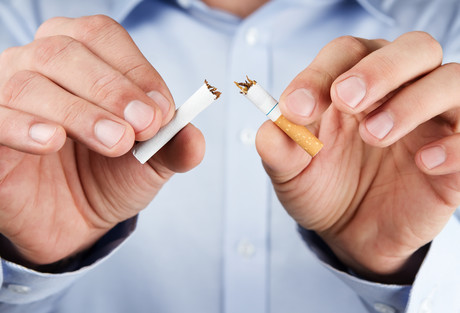Four in five lung cancers are preventable: study

New research from UNSW Sydney has revealed that the majority of lung cancer cases in Australia can be prevented by adopting healthy lifestyle behaviours, such as quitting smoking, boosting fruit intake and being physically active.
Lung cancer is the leading cause of cancer death in Australia and worldwide, with tobacco smoking responsible for most of the lung cancer burden in Australia. That’s according to a collaborative study led by UNSW’s Centre for Big Data Research in Health, which pooled seven Australian cohort studies of 370,000 people.
“More than three out of four lung cancers are caused by ever-smoking,” said UNSW Senior Research Fellow Dr Maarit Laaksonen, referring to people who have smoked at least 100 cigarettes and cigars during the course of their life. “Current smoking is responsible for more than half of lung cancers and past smoking for nearly a quarter.”
While most current smokers do not describe themselves as ‘heavy’ smokers, those who smoke fewer than 20 cigarettes a day carry a large proportion of the future lung cancer burden. Furthermore, the harm from smoking persists, with lung cancer risk remaining elevated for 40 years after stopping smoking and halving every 10 years.
The good news is that, of the 74,600 lung cancers attributable to current smoking in Australia in the next 10 years, 25,400 could be avoided if all current smokers were to quit. The study findings thus emphasise the importance of plain packaging and other tobacco control activities that discourage smoking uptake.
The researchers also found that eating two serves (about 300 grams) of fruit each day may reduce the lung cancer burden by 8%, and doing the recommended 150 minutes of moderate or 75 minutes of vigorous physical activity each week may reduce the lung cancer burden by 16%. Currently, about 16% of Australians smoke but roughly half of all Australians are not meeting the guidelines for fruit intake and 74% are not meeting guidelines for physical activity.
“The majority of Australians could benefit from increasing their fruit intake and physical activity,” Dr Laaksonen said. “But for those who currently smoke, stopping smoking should be the first course of action.”
Overall, at least four in five lung cancers appear preventable through behaviour modifications.
The study also enabled the researchers to compare the lung cancer burden for different population subgroups. They found that men, those less than 75 years of age, those who are unmarried, those with lower educational levels, those living in remote areas of Australia and those not meeting the fruit consumption or physical activity recommendations have the highest smoking-attributable lung cancer burden. Such high-burden groups are likely to benefit most from efforts that help them to not take up smoking, to quit smoking and to be considered for screening to facilitate early detection.
“Our findings strongly support the dual importance of preventing the uptake of smoking and assisting quitting, in all Australians and especially in those with the highest burden,” Dr Laaksonen said.
Pancreatic cancer hijacks metabolism switch to help it spread
Pancreatic cancer hijacks a molecule known for regulating physiological processes, such as food...
Novel antibiotic activates 'suicide' mechanism in superbug
Researchers have discovered a new class of antibiotic that selectively targets Neisseria...
Modifications in the placenta linked to psychiatric disorders
Schizophrenia, bipolar disorder and major depression disorder are the neuropsychiatric disorders...




